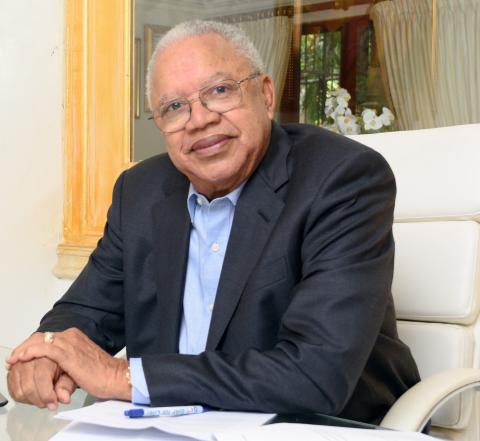
The COVID-19 pandemic changed the face of healthcare globally in ways that will remain for years to come. Now, in the post-pandemic era, many practices, including the increased introduction of technology in many areas have become standard within the industry, with both caregivers and patients embracing these changes.
Telehealth was one of the most impacted areas during the pandemic. In the same way that many companies had to resort to an online work environment because of lockdowns, many medical facilities had to also pivot for the same reasons, in addition to the reduced ability to see large numbers of patients accessing care in-person.
A lot of people are opting to go back to in-person work and healthcare delivery despite the fact that telehealth has proven to be a viable option for access to health services.
Jamaicans have always been wary of new technology and slow to embrace anything they perceive can be intrusive. However, we are at a turning point where we can make the most of the recent interest in telehealth. The continuous developments where the modernisation of the health sector is concerned have been promising, but in recent times, been a greater shift globally towards the increased use of technology in nearly every aspect of healthcare.
We must make sure we are not left behind. The Government and private sector are doing their part, in terms of the implementation of various technology in health, though still not widespread, but we must also focus on the users, as without them, all efforts will be for naught. This means that it is time to start marketing health technology to the people. Since the Government recently awarded a contract for the delivery of telehealth services at select health facilities, the need is even greater to get buy-in from the public in as little time as possible.
The introduction of the e-care pilot programme by the Ministry of Technology in 2018 was a good start. This should ideally be expanded in phases to incorporate more than the initial 5,000 persons targeted in select rural health centres. The programme’s focus was on persons with chronic non-communicable diseases, ensuring remote access to medical personnel, facilitating telemedicine consultation and allowing health practitioners to send electronic prescriptions. Any success received under the e-care programme will serve to encourage persons to use the technology and trust that telehealth can work for them. This could benefit the overall plans for wide-scale digitisation of healthcare as persons would get a feel of what would be required of them and the Government could fill the gaps that could potentially pose a problem to the initiative’s wider success.
We must ensure that we not only promote behaviour change to get people to warm to the idea of using health technology, but also give them the tools to make access easier and worthwhile. One of the things that will need addressing if telehealth is going to be in widespread use is Internet access. Having hospitals digitised but patients unable to access services online from home – or anywhere else – will not auger well for the success of the programme. The same goes for if the facilities are not properly equipped with the tools they need to operate. It is not difficult to show people how they could potentially benefit from the upcoming changes in the healthcare landscape. The challenge will be to prove it and maintain the system to keep their confidence once it has been secured.
The growth in the technology sector will not be slowed any time soon.
“The global eHealth market in terms of revenue was estimated to be worth US$69.5 billion in 2020 and is poised to reach US$193.8 billion by 2025, growing at a compound annual growth rate (CAGR) of 22.8 per cent from 2020 to 2025,” says marketsandmarkets.com. And precedenceresearch.com expects that by 2030, the market size will increase to US$454.81 billion.
We must be a part of this forward movement in health.
Doug Halsall is the chairman and CEO of Advanced Integrated Systems. Email feedback to doug.halsall@gmail.com and editorial@gleanerjm.com
Published: Sunday | February 5, 2023 | 1:31 AM
https://jamaica-gleaner.com/article/news/20230205/health-tech-ehealth-ma...

